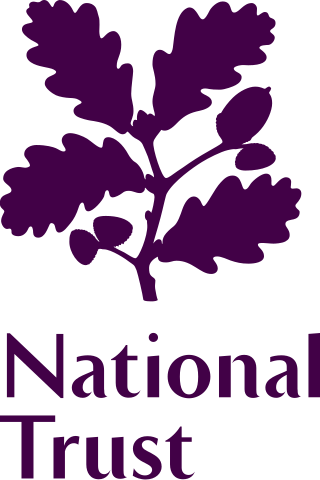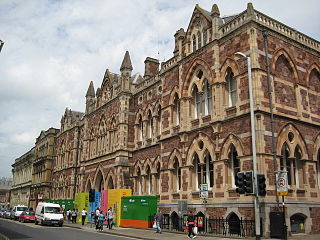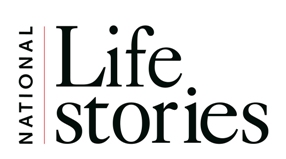
The Royal Society for the Encouragement of Arts, Manufactures and Commerce, commonly known as the Royal Society of Arts (RSA), is a London-based organisation.

The National Trust is a charity and membership organisation for heritage conservation in England, Wales and Northern Ireland. In Scotland, there is the separate and independent National Trust for Scotland.

English Heritage is a charity that manages over 400 historic monuments, buildings and places. These include prehistoric sites, medieval castles, Roman forts and country houses.

The National Garden Scheme opens privately owned gardens in England, Northern Ireland, Wales, and the Channel Islands on selected dates for charity. It was founded in 1927 with the aim of "opening gardens of quality, character and interest to the public for charity". The scheme has raised over £67 million since it began, and normally opens over 3,500 gardens a year.

Edward Stephen Harkness was an American philanthropist. Given privately and through his family's Commonwealth Fund, Harkness' gifts to private hospitals, art museums, and educational institutions in the Northeastern United States were among the largest of the early twentieth century. He was a major benefactor to Columbia University, Yale University, Harvard University, Phillips Exeter Academy, St. Paul's School, the Metropolitan Museum of Art, and the University of St Andrews in Scotland. He was elected a member of the American Philosophical Society in 1934.

The National Portrait Gallery (NPG) is an art gallery in London that houses a collection of portraits of historically important and famous British people. When it opened in 1856, it was arguably the first national public gallery in the world that was dedicated to portraits.

The British Film Institute (BFI) is a film and television charitable organisation which promotes and preserves film-making and television in the United Kingdom. The BFI uses funds provided by the National Lottery to encourage film production, distribution, and education. It is sponsored by the Department for Culture, Media and Sport, and partially funded under the British Film Institute Act 1949.

The Prince's Trust is a United Kingdom-based charity founded in 1976 by King Charles III to help vulnerable young people get their lives on track. It supports 11-to-30-year-olds who are unemployed or struggling at school and at risk of exclusion. Many of the young people helped by the trust face issues such as homelessness, disability, mental health problems, or trouble with the law.

Hugh Pattison Macmillan, Baron Macmillan, was a Scottish advocate, judge, parliamentarian and civil servant.

The Girls' Day School Trust (GDST) is a group of 25 independent schools, including two academies, in England and Wales, catering for girls aged 3 to 18. It is the largest group of independent schools in the UK, and educates 20,000 girls each year. It was formed in 1872 to provide affordable day-school (non-boarding) education for girls as The Girls' Public Day School Company (1872–1905), then The Girls' Public Day School Trust (1906–1998).

Stephen Vanderburgh Harkness was an American businessman based in Cleveland, Ohio. He invested as a silent partner with John D. Rockefeller, Sr. in the founding of Standard Oil and served as a director of Standard Oil until his death.
Sheffield, England, has a large population of amateur, working and professional visual artists and artworks.

Bristol Royal Hospital for Children, also known as the Bristol Children's Hospital, is a paediatric hospital in Bristol and the only paediatric major trauma centre in South West England. The hospital is part of the University Hospitals Bristol and Weston NHS Foundation Trust (UHBW), which includes eight other hospitals. The hospital is located next to the Bristol Royal Infirmary in the city centre.

Royal Albert Memorial Museum & Art Gallery (RAMM) is a museum and art gallery in Exeter, Devon, the largest in the city. It holds significant and diverse collections in areas such as zoology, anthropology, fine art, local and overseas archaeology, and geology. Altogether the museum holds over one million objects, of which a small percentage is on permanent public display. It is a National Portfolio Organisation under the Arts Council England administered programme of strategic investment, which means RAMM receives funding (2012–15) to develop its services.
BookTrust is a UK children's reading charity dedicated to getting children reading.

The National Churches Trust, formerly the Historic Churches Preservation Trust, is a British registered charity whose aim is to "promote and support church buildings of historic, architectural and community value across the UK".

National Life Stories (NLS) is an independent charitable trust and limited company based within the British Library Oral History section, whose key focus and expertise is oral history fieldwork. Since 1987 National Life Stories (NLS) has initiated a series of innovative interviewing projects funded almost entirely from sponsorship, charitable and individual donations.

The Contemporary Art Society (CAS) is an independent charity that champions the collecting of outstanding contemporary art and craft for UK museum collections. Since its founding in 1910 the organisation has donated over 10,000 works to museums across the UK. From the 1930s the Society also donated works to Commonwealth museums, but since 1989 the focus has remained exclusively on UK institutions.

Paintings in Hospitals is an arts in health charity in the United Kingdom. Founded in 1959, the charity's services include the provision of artwork loans, art projects and art workshops to health and social care organisations. The charity's activities are based on clinical evidence demonstrating health and wellbeing benefits of the arts to patients and care staff.
















